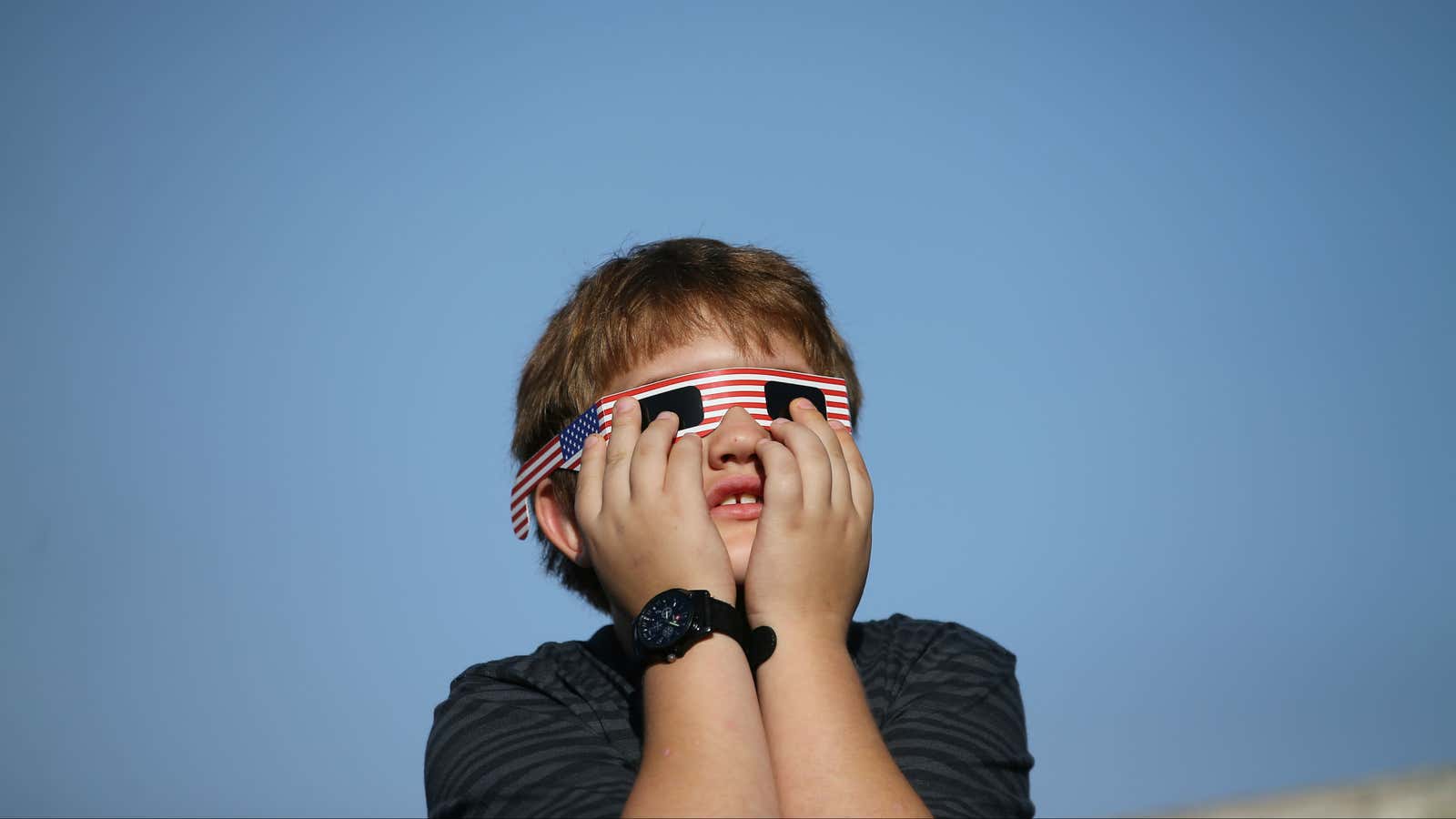Everyone watching the US solar eclipse today (Aug. 21) was warned again and again: Wear certified protective glasses.
But if you forgot to buy glasses, or you left them at home, or your name is Donald Trump, then it was near-impossible to ignore the temptation of staring directly at the sun. (And if you did, you saw only the sun’s blazing light, not the moon crossing over its path.)
Special eclipse glasses work by blocking out the sun’s UV rays (as well as some of the purple light wavelengths we can usually see). But staring at the sun sans specs puts you at risk for ”solar retinopathy,” which is when those UV rays overwhelm the part of your eye that takes in light, called the retina. According to NASA, this kind of damage can occur before 100 seconds have gone by, although no one knows the exact amount of time it takes to permanently damage your vision. (Additional fun fact: Our retinas don’t have pain receptors like the rest of our body, so it’s impossible to feel how bad the damage is.)
Louis Tomososki, an eclipse enthusiast at age 16, told the Washington Post that he and his friends had tried to look at a solar eclipse without glasses for up to 20 seconds at a time. Afterward, he noticed that even when he looked away, he’d see a bright patch of light in the middle of his vision. Unfortunately, this was the beginning of permanent vision damage: Tomososki now constantly sees a blurry white spot out of his right eye.
Those who did look directly at the eclipse aren’t alone. As Live Science reports, after an eclipse ophthalmologists usually see a flood of patients show up with blurred vision or light or dark spots. Although there isn’t a lot they can do medically, eyes do seem to have some capacity to heal themselves. After an eclipse in 1976, researchers reported that some people were able to partially heal after 18 months. The bad news is that any lingering problems beyond that were likely permanent.
If you feel like your vision is off after staring at the sun today, it’s definitely worth a trip to the doctor. But rest assured, we all make mistakes: Even Isaac Newton allegedly blinded himself for three days looking in the sun’s reflection in a mirror.
